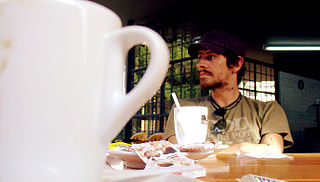A Quote by Matt Groening
I think in daily newspapers, the way comic strips are treated, it's as if newspaper publishers are going out of their way to kill the medium. They're printing the comics so small that most strips are just talking heads, and if you look back at the glory days of comic strips, you can see that they were showcases for some of the best pop art ever to come out.
Related Quotes
It's a mystery to me why comics have been so despised for so long. Obviously, it has to do with the history of the medium - arising out of cheaply-reprinted booklets of newspaper strips, just out to make a quick buck, followed by mostly-crappy original work. It took a while for really talented artists to move into the comic-book world from the newspapers. It really is strange that even TV commercials got respect before comics did. I have never been able to figure it out.
My parents read the comics to me, and I fell in love with comic strips. I've collected them all of my life. I have a complete collection of all the "Buck Rogers" Sunday funnies and daily paper strips, I have all of "Prince Valiant" put away, all of "Tarzan," which appeared in the Sunday funnies in 1932 right on up through high school. So I've learned a lot from reading comics as a child.
Saturday morning cartoons do that now, where they develop the toy and then draw the cartoon around it, and the result is the cartoon is a commercial for the toy and the toy is a commercial for the cartoon. The same thing's happening now in comic strips; it's just another way to get the competitive edge. You saturate all the different markets and allow each other to advertise the other, and it's the best of all possible worlds. You can see the financial incentive to work that way. I just think it's to the detriment of integrity in comic strip art.






























